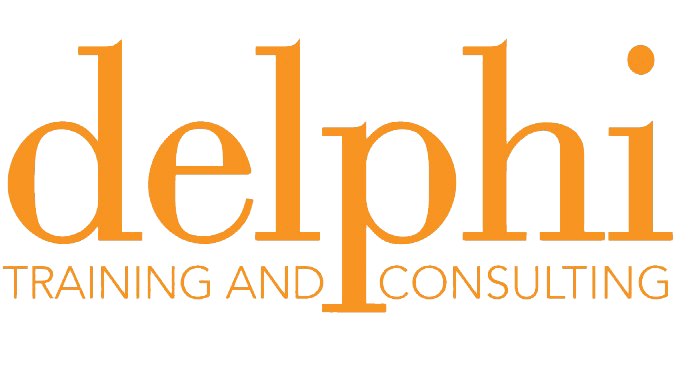
Join our NETWORK
Get all latest news, event updates and access to resources & information.

$195.00 Original price was: $195.00.$175.00Current price is: $175.00.
Student Price will be calculated at checkout. Please make sure have regsitered for a student account and are logged in.
Secure attachment is the foundation upon which an infant explores the world, navigates developmental tasks and achieves milestones. The safety that arises from secure attachment fosters brain development and curiosity about the world. Curiosity fosters learning. Learning fosters mastery. Mastery fosters confidence and trust in self and others.
Trauma, abuse and neglect impact an infant’s capacity to attach and attachment style. Adverse as well as positive relational experiences that occur during the first 2 -12 months of life are more strongly associated with a child’s and adult’s current functioning than experiences that occur during early childhood, 2-6 years, and childhood, 6-13 years (2017, Hambrick, Brawner, Perry).
Three insecure attachment styles in adults have been identified, anxious preoccupied (or anxious/ambivalent), dismissive avoidant and fearful avoidant (or disorganized). Each style is a response to, and defence against, relational deficits of caregivers.
A child’s bio-psycho-social development is a complex interweaving of family relationships, genetics, neighbourhood, financial stressors, access to education and services and the influence of peers. When child abuse and neglect is a factor, the core trauma dynamics of the locus of control shift and ambivalent attachment to the perpetrator (Ross and Halpern, 2009) underpin inner and external relational conflicts. Paradoxically, it is within the context of relationship, that the opportunity to heal presents.
Understanding both the client’s and therapist’s attachment styles is fundamental to developing, strengthening and maintaining the therapeutic relationship. Attunement with the client’s attachment fears and needs creates ‘present moments’ that strengthen the relationship and create a ‘safe enough space’ for attachment and related trauma work to be undertaken.
Both mis-attunement and attunement can trigger shame and attachment defences which can easily activate Karpman’s triangle. This may lead to escalating transference and countertransference responses and spiral into therapeutic impasse.
This workshop explores three insecure attachment styles, the role of shame and core trauma dynamics: locus of control shift and ambivalent attachment to the perpetrator, which keep attachment defences in play.
Utilising the theory of structural dissociation (van der Hart, Nijenhuis, Steele, 2006) and a ‘parts’ approach (Fisher, 2017) in combination with resolving core trauma dynamics and development of a therapeutic relationship suited to the client’s attachment style (Brown and Elliot, 2016), we will learn how to create ‘present moments’ (Hart, 2017) to tap lightly on the door of the client’s defences and seek permission to come in.
The workshop focus is therapy with adults. Through clinical vignettes, experiential opportunities for self and client reflections participants will deepen their understanding of, and confidence in entering the terrifying world of insecure attachment and develop a pathway to healing.

Naomi trained as a social worker in the UK. Early in her career she worked with children in short stay emergency care, homeless youth, and convicted offenders in government and non-government organisations, providing advocacy, psychosocial education, recreational opportunities, skills training, supervision and counselling. She holds a Grad. Cert. Human Rights and is a certified QPR trainer (suicide prevention).
In 1987, Naomi went into partnership at The Delphi Centre, now known as Delphi Training and Consulting where she developed expertise in therapy for adult sequelae of childhood abuse, neglect and attachment disruptions.
Naomi provides clinical consultation for complex post-traumatic stress, dissociative disorders and related impacts of childhood developmental trauma and abuse including self-harming behaviour, suicidality and substance abuse, for mental health professionals working with adult victim-survivors of intergenerational trauma, gender-based violence, and other trauma. She has a wealth of experience working with people across socioeconomic groups, faiths, and sexual orientation.
She is a consultant and trainer for law firms, providing trauma informed training and supporting lawyers’ mental health and wellbeing. Since 2009, Naomi has been a consultant to the United Nations developing and delivering a broad range of trauma informed programs to personnel in missions and duty stations around the world. Most recently she developed a Gatekeeper suicide prevention training for Safety and Security Services and trauma informed awareness training for the Office of the Special Coordinator on improving the UN’s response to Sexual Exploitation and Abuse, the Ombudsman and Ethics Units and Human Resources and Services Department.
A skilled speaker and trainer, Naomi has presented training about complex and developmental trauma, vicarious trauma, resilience building and workplace wellbeing through Delphi and United Nations, in-person and online across all Australian States and Territories – Africa – Canada – Denmark – Germany – India – Italy – Lebanon – New Zealand – Romania – Thailand – United States. See organisations Naomi has partnered
A founding member of The Australian Association of Trauma and Dissociation Inc. in 1992 (amalgamated with the Australasian Association of Traumatic Stress Studies in 1996) Naomi served on the Executive Committee and Conference Committee from 1991 – 1996, and as Treasurer from 1992 – 1995.
She is a founding member and spokesperson for an action group for victims of white collar crime. An advocate for victims of deceptive and misleading financial advice, Naomi has provided submissions and testimony to senate committees and other inquiries and has been an invited speaker at financial industry forums regarding the impact of white collar crime, the changes needed in the industry and legislation. She has worked closely with parliamentarians across political parties and the media. She is frequently contacted for commentary.
She is co-author with Dr Colin A. Ross, (2009) Trauma Model Therapy: A Treatment Approach for Trauma, Dissociation and Complex Comorbidity, Manitou Inc. and two studies about Maladaptive daydreaming.
Naomi is a Fellow of the International Society for the Study of Trauma and Dissociation (2017) and recipient of the Distinguished Achievement Award (2022).

Get all latest news, event updates and access to resources & information.
Fill in the form below to generate your student account, if you already have an account please contact Delpi Training & Consulting directly